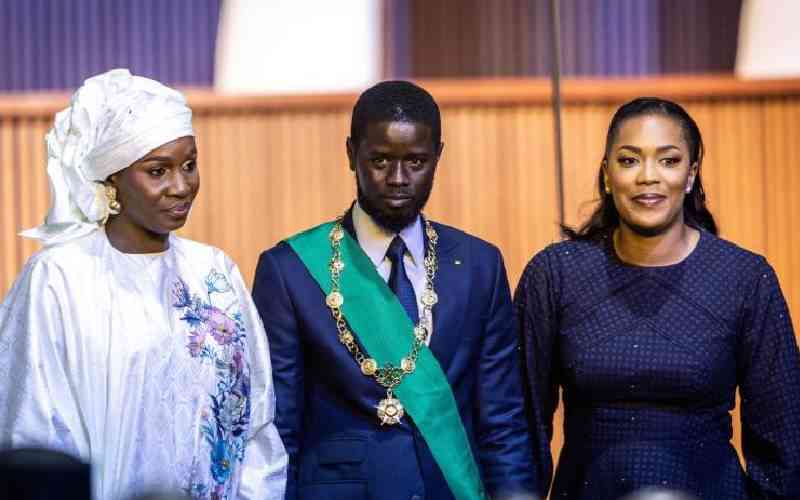
The navy-blue boubou adorned with a smattering of tiny white sparkles running across the chest, or the silverish one with a dash of miniscule greyed triangles intricately patterned out in front, are becoming the trademark garments for Senegal's new president Bassirou Diomaye Diakhar Faye.
But on his inauguration, the 44-year-old posed in his immaculate blue suit embroidered with a green sash and ceremonial chains of office, a slumped Senegal's flag in the corner behind him, his two wives flanking the political-greenhorn-overnight-turned-president.